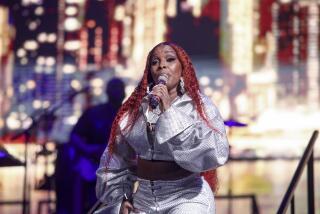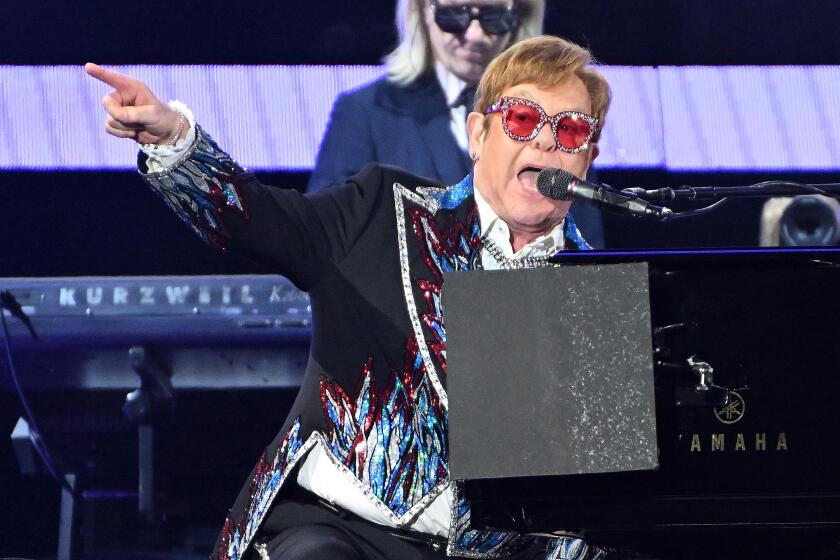Mary J. Blige’s Soulstress Appeal Cuts a Universal Path
A major part of Mary J. Blige’s appeal stems from her unpretentiousness. The diminutive soulstress, who played Thursday night at the Universal Amphitheatre, may sport expensive jewelry and designer dresses, but her fans--be they CEOs or welfare recipients--respond to her warmth and authenticity.
A Mariah Carey or Janet Jackson might seem to live in a world that few can really relate to, but Blige, for all of her success and material gains, seems like someone you could swap dating horror stories with at the local hair-and-nail emporium. Her accessibility, be it genuine or just a wishful projection, is what sets her apart.
Though Blige’s concert last year at the Great Western Forum was superior to her performance Thursday, the native New Yorker definitely had her moments. She tore into “I Can Love You” so effectively that even the absence of rapper Lil’ Kim mattered little--and that’s saying something since Kim’s tart, confrontational contributions to the recorded version are at the heart of this song’s heft and personality.
Confrontation is not something Blige shies away from in her music, and the mournful anger she brings to “Not Gon’ Cry” still makes it one of her most powerful deliveries. When Blige sounds angry on a song, it doesn’t appear to be a diva-esque expression of drama for drama’s sake. There’s real heartbreak at the core of it, so even when she sings a happy, more lighthearted tune such as “Everything,” it’s still sadly moving--because Blige’s happiness sounds so hard-won.
Blige belongs to an echelon of singers who really speak to and for their audience. Aretha Franklin was that type of singer in the ‘60s, while Chaka Khan carried the torch in the ‘70s. Technically, Blige is not as great a singer as Franklin or Khan, but when it comes to conveying passion, heartache, anger and joy, she is their equal.
Also on Thursday’s bill was Usher, urban music’s current teen heartthrob. He is an undeniably adorable young guy whose renditions of songs by Michael Jackson and Bobby Brown made it clear that he’d like to fill their shoes, at least in terms of commercial success and acceptance.
He’s got the scintillating dance moves of Jackson and the raunchy, bad boy spice of Brown. But Usher also has enough charm, talent and individuality of his own to sidestep any persistent comparisons to those artists. His Latin-spiked “You Make Me Wanna . . . “ showed why it was a career-launcher for him, while “Nice & Slow” had plenty of girls at the Amphitheatre helping him sing it line for line.
Opening act Next didn’t deliver anything that packed as much of a punch as “Butta Love,” the group’s suggestive ’97 urban radio hit. But the buffed vocal trio put on an entertaining, if a tad too lengthy, choreography-packed set.
More to Read
The biggest entertainment stories
Get our big stories about Hollywood, film, television, music, arts, culture and more right in your inbox as soon as they publish.
You may occasionally receive promotional content from the Los Angeles Times.










